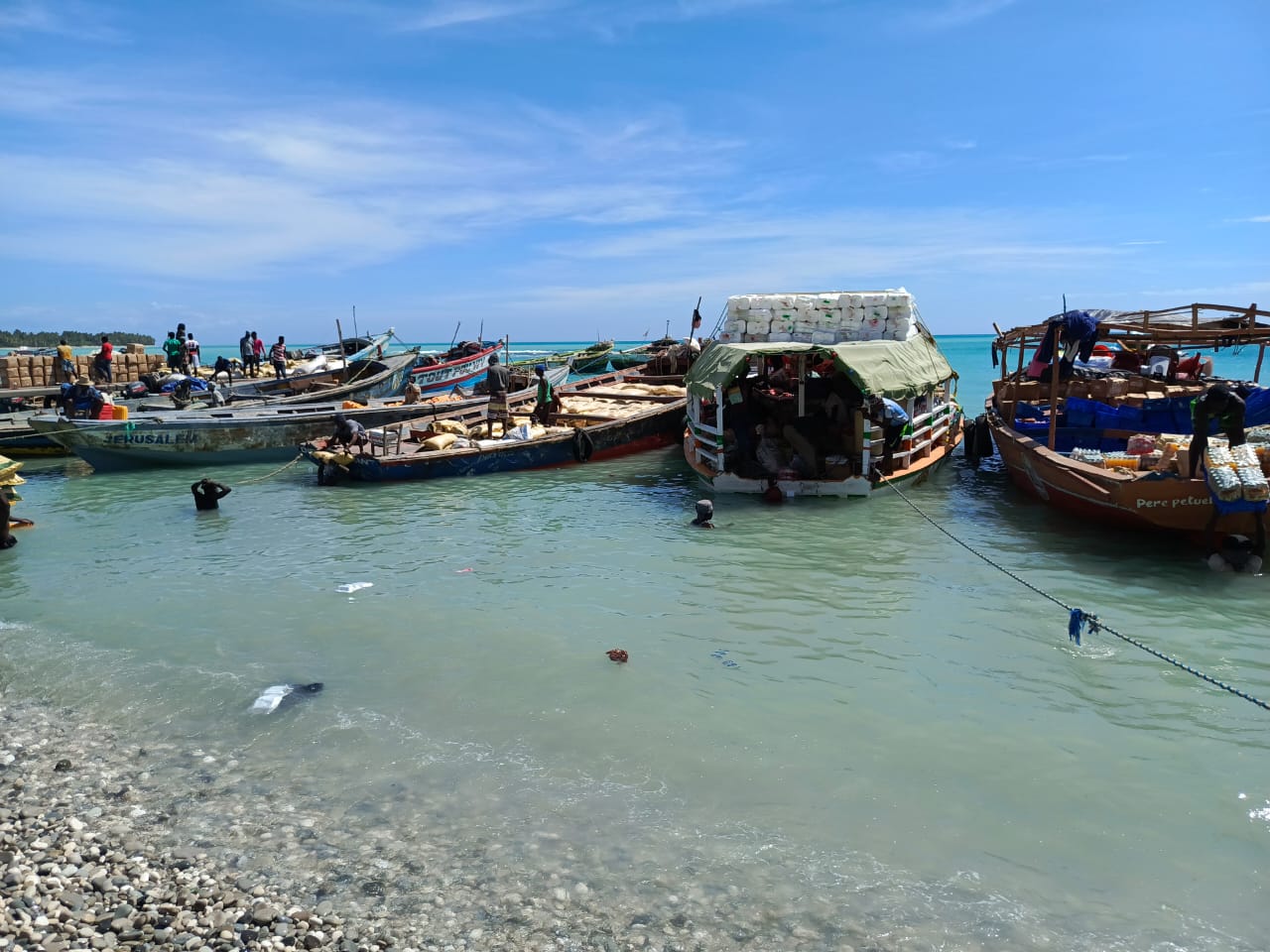Have you ever wondered what true zeal for the Gospel looks like?
What would it take to leave behind comfort and familiarity to spread the good news of salvation to those who have never heard it?
How can we, as modern Christians, recapture the burning passion for missions that characterized the early church?
The Moravian missionaries of the 18th century provide a compelling answer to these questions. Their story is one of remarkable dedication, unwavering faith, and a burning passion to spread the Gospel to the ends of the earth. Emerging from a context of persecution and hardship, they embraced a radical lifestyle and innovative approaches that left a lasting impact on the history of Christian missions.
Roots of their Zeal
The Moravians’ remarkable zeal was deeply rooted in two primary influences:
The Pietist Movement: The Moravians emerged from the Pietist movement, a spiritual renewal movement within Lutheranism that emphasized personal piety, heartfelt devotion, and a fervent passion for evangelism. This Pietist heritage instilled in them a deep love for Christ and a burning desire to share their faith with others. They were not content to keep their faith private but felt compelled to spread the good news of salvation to those who had not yet heard it.
Count Nikolaus Ludwig von Zinzendorf: The visionary leader of the Moravian Church, Count Zinzendorf, played a pivotal role in shaping their missionary vision. He emphasized the centrality of Christ’s sacrifice and the importance of global missions, inspiring many to dedicate their lives to spreading the Gospel. Zinzendorf’s leadership and passion ignited a fire in the hearts of the Moravians, propelling them to take the Gospel to distant lands and unreached people groups.
Motivations that Fueled their Mission
Two core motivations fueled the Moravians’ extraordinary missionary endeavors:
Love for Christ: At the heart of their zeal was a profound love for Christ and a desire to see His name glorified among all nations. This love fueled their willingness to endure hardship, persecution, and even death for the sake of the Gospel. They understood that their mission was not merely a duty but a response to the overwhelming love of Christ that had transformed their own lives.
Compassion for the Lost: The Moravians possessed a deep compassion for those who had not yet heard the good news of salvation. This compassion drove them to reach out to people in remote and challenging areas, including those living in poverty, slavery, and spiritual darkness. They were prepared to venture to the furthest reaches of the globe, confronting immense obstacles and perils, in order to deliver the message of hope and salvation to those in dire need.
“May the Lamb that was slain receive the reward of His suffering!”
Innovative Methods that Enabled their Success
The Moravians employed several innovative methods that enabled them to achieve remarkable success in their missionary endeavors:
Communal Living: They often lived in close-knit communities, sharing resources and supporting one another in their missionary endeavors. This communal lifestyle fostered a strong sense of unity, mutual encouragement, and shared purpose. It also allowed them to pool their resources and maximize their impact in the mission field.
Tentmaking: The Moravians pioneered the concept of “tentmaking,” where missionaries would support themselves through secular work while also engaging in evangelism. This innovative approach allowed them to reach people who might not otherwise be accessible to traditional missionaries, such as slaves and those in closed societies. It also enabled them to establish a long-term presence in communities and build relationships with people over time.
Simple Gospel Proclamation: They focused on proclaiming the simple message of the Gospel, emphasizing the love of God and the sacrifice of Christ. This direct and clear approach proved effective in reaching people from diverse backgrounds and cultures. They understood that the power of the Gospel lay not in complex theological arguments but in the simple truth of God’s love for humanity.
A Lasting Impact on the World
The Moravians’ zeal for missions left a lasting impact on the world:
Global Reach: They established missions in various parts of the world, including the Caribbean, North and South America, Greenland, Africa, and the Far East. Their efforts led to the conversion of many people and the establishment of churches in these regions, laying the foundation for the growth of Christianity in many parts of the world.
Influence on Other Missionaries: Their zeal and commitment inspired countless other missionaries, including William Carey, who is often considered the “father of modern missions.” Carey was deeply influenced by the Moravians’ example and adopted many of their methods in his own missionary work, further expanding the reach of the Gospel.
Lessons from the Moravians for Today’s Church
The Moravian missionaries offer valuable lessons for the modern church:
The Importance of Personal Devotion: Their deep love for Christ and their commitment to prayer and spiritual disciplines were essential to their missionary success. They understood that their effectiveness in ministry flowed from their intimacy with Christ. How can we deepen our own personal devotion to Christ and allow it to fuel our passion for missions?
Compassion for the Lost: Their compassion for those who had not yet heard the Gospel should inspire us to reach out to those around us who are still in need of salvation. Their example reminds us that every soul is precious and that we have a responsibility to share the hope of the Gospel with a lost and dying world. How can we cultivate a greater compassion for the lost and actively seek opportunities to share the Gospel with them?
Sacrificial Service: Their willingness to endure hardship and sacrifice for the sake of the Gospel challenges us to consider how we can give of ourselves more fully in service to Christ. They remind us that following Jesus involves denying ourselves, taking up our cross, and following Him, even when it is costly. Are we willing to make sacrifices for the sake of the Gospel, even if it means stepping outside our comfort zones?
Partnership and Unity: Their emphasis on communal living and partnership in ministry reminds us of the importance of working together to advance the Gospel. They demonstrated that the body of Christ is stronger when we work together, supporting one another and sharing in the mission that God has given us. How can we better partner with other believers to advance the Gospel and reach more people for Christ?
The Moravian missionaries stand as a powerful example of what it means to be truly zealous for the Gospel. Their legacy continues to inspire and challenge Christians today to live lives of passionate devotion and sacrificial service for the sake of Christ and His kingdom. May their famous quote, “May the Lamb that was slain receive the reward of His suffering,” resonate in our hearts and motivate us to live lives that are wholly devoted to the glory of God and the advancement of His kingdom.
Bibliography
Gollin, G. L. (1998). Moravians in Two Worlds: A Study of Changing Communities. New York: Columbia University Press.
Grider, K. R. (1994). A Critical Analysis of the Moravian Church’s Understanding and Practice of Missions in the Eighteenth Century. Lewiston, NY: Edwin Mellen Press.
Hamilton, J. T. (2007). A History of Moravian Missions. Forgotten Books.
Langton, E. (1956). History of the Moravian Church: The Story of the First International Protestant Church. Bethlehem, PA: Moravian Church in America.
Neill, S. C. (1964). A History of Christian Missions. Penguin Books.
Potts, E. D. (1967). British Baptist Missionaries in India 1793–1837: The History of Serampore and its Missions. Cambridge University Press.
Shantz, D. S. (2013). An Introduction to German Pietism: Protestant Renewal at the Dawn of Modern Europe. Baltimore: Johns Hopkins University Press.
Weinlick, J. R. (1989). Count Zinzendorf. Abingdon Press.


